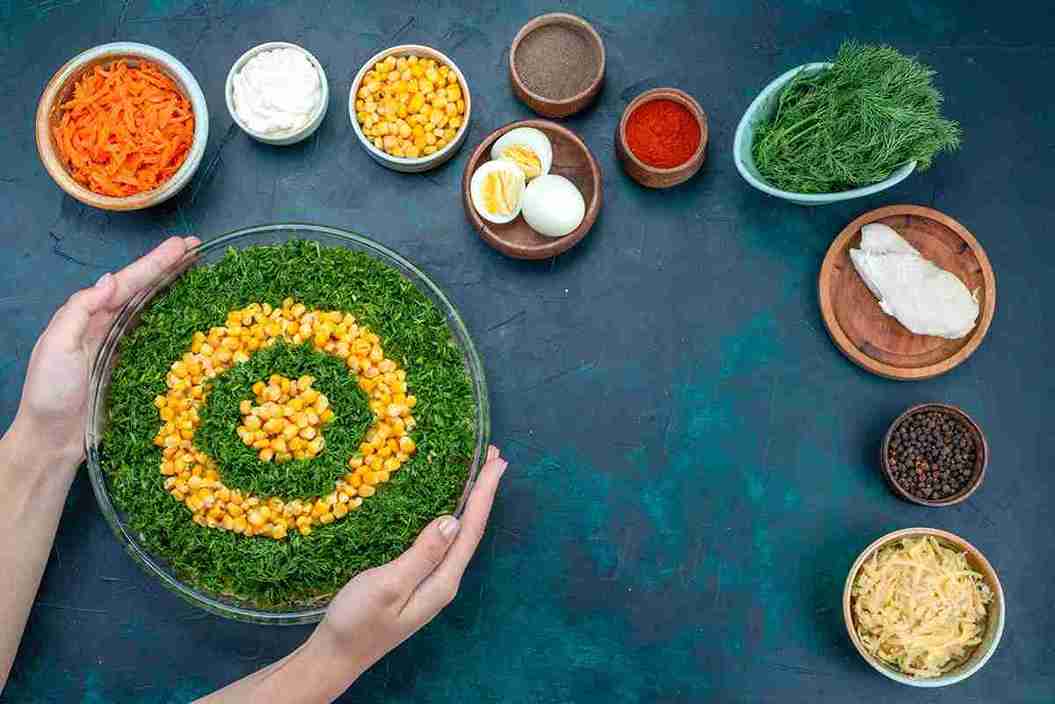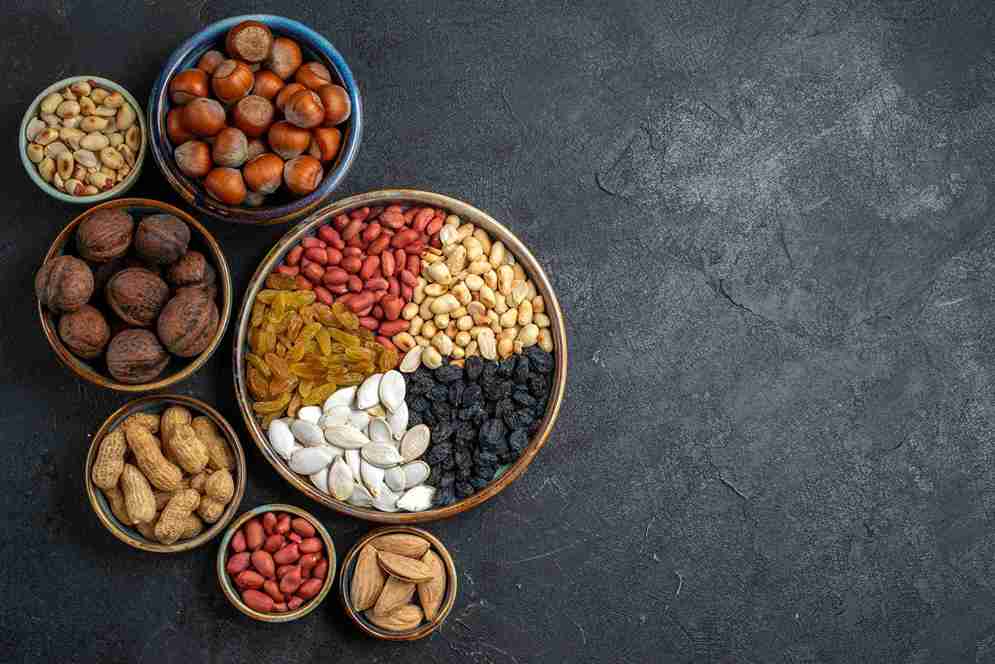
Folic acid helps metabolise protein and helps in the formation of RNA and DNA. It is essential to break down the amino acid homocysteine, which has a detrimental effect on the body if at high levels. Folic acid also plays a key role in producing red blood cells needed during pregnancy and fetal development. For this reason, adults are advised to consume at least 400 mcg of folic acid daily to prevent deficiency. Here are the top 10 high-folate foods to add to your diet.

Legumes, such as lentils, beans and peas, belong to the Fabaceae family and are the seeds or fruits of plants. They are a great source of folic acid, although the amount each contains may differ. For instance, a cup of cooked beans has 131 mcg of folic acid, or 33% of the RDV (Recommended Daily Value). A cup of cooked lentils has 358 mcg of folic acid or 90% RDV. In addition to folic acid, legumes also contain essential micronutrients like iron, magnesium, and potassium. Packed with fibre, protein and antioxidants, they provide excellent nutritional value for a healthy diet.
Eating eggs is a great way to include folic acid and other essential nutrients in your diet. A large egg has 22 mcg of folic acid or 6% RDV. Enjoying eggs several times a week is a simple way to get more folic acid, Vitamin B12, riboflavin, protein and selenium. They are also rich in zeaxanthin and lutein antioxidants, which reduce macular degeneration (eye disorder).
Thanks to their high folate content, leafy greens and folic acid make a powerful pair. Green vegetables like kale, spinach, and arugula are rich in folic acid and other key minerals and vitamins and have a low caloric value. A cup of raw spinach provides 58.2 mcg of folic acid or 15% of RDV. Leafy greens contain high amounts of vitamin A, vitamin K and fibre. Eating leafy greens is associated with numerous health benefits, with studies suggesting that increasing intake of cruciferous vegetables may help reduce inflammation, lower cancer risk and support weight loss.
Lemons, grapefruits, oranges, and limes are citrus fruits rich in folic acid, full of flavour, and naturally delicious. A large orange has 55 mcg of folic acid or 14% of RDV. Citrus fruits contain essential micronutrients, including vitamin C, which helps prevent diseases and strengthens immunity. Studies suggest that consuming adequate amounts of citrus fruits reduces the risk of stomach, pancreatic and breast cancers.
Broccoli is a cruciferous vegetable known for its powerful nutritional benefits. It provides a variety of minerals and vitamins, along with folic acid, which is why it’s worth including in your everyday meals. A cup of broccoli has about 57 mcg of folic acid and 14% RDV. As per studies, cooked broccoli is more beneficial as it has more folic acid, with half a cup providing 84 mcg or 21% RDV of folic acid. It is also rich in vitamins A, C, and K, manganese and plant compounds like sulforaphane, which are known for their anti-cancer properties.
Seeds and nuts are packed with protein, fibre, essential vitamins and minerals, and folic acid. Adding a variety of them to your daily diet can help support your folic acid intake. The folic acid content differs across types — for example, walnuts offer more folic acid per serving than flax seeds.

Papaya is a nutrient-dense fruit rich in folic acid, flavourful, and naturally delicious. One cup of raw papaya provides about 53 mcg of folic acid—roughly 13% of the recommended daily value. It’s also a great source of carotenoids (antioxidants), potassium, and vitamin C. However, pregnant women should avoid unripe or semi-ripe papaya, as it may trigger early contractions.
Bananas are a powerhouse of nutrition, packed with essential vitamins and minerals, including a good amount of folic acid. Pairing them with other folic acid-rich foods can help meet your recommended daily value. A medium-sized banana offers about 24 mcg of folic acid—roughly 6% of the RDV. They’re also rich in manganese, potassium and vitamin B6, making them a superfood.
Avocados are loved for their creamy texture and buttery flavour when ripe, making them a popular addition to many dishes. They’re packed with essential nutrients and are an excellent source of folic acid. Half an avocado provides around 82 mcg—about 21% of the recommended daily value. It’s also rich in vitamins B6, K, and C, potassium, and heart-healthy monounsaturated fats.
Beets are known for adding a vibrant pop of colour to both savoury dishes and desserts. They contain essential nutrients like vitamin C, potassium, manganese and folic acid. One cup of uncooked beets includes 148 mcg of folic acid—around 37% of the recommended daily value. They’re also rich in nitrates, natural plant compounds linked to several health benefits. One study even found that drinking beetroot juice helped reduce blood pressure in adults.

It is rare to have a folic acid deficiency as it is available in many foods. However, the below conditions put you at risk:
● Pregnancy: Folic acid needs to increase during pregnancy as it is essential for fetal growth and development. Hence, pregnant women should consume a folic acid-rich diet or take supplements.
● Digestive disorders: Intestinal surgeries, stomach disorders, inflammatory bowel disease and celiac disease decrease folic acid absorption. Surgeries involving digestive organs can lower stomach acid levels and inhibit nutrient absorption.
● Genetics: Some people have a variation in the MTHFR gene, which makes it harder for their bodies to turn folic acid into the active form it needs.
● Alcoholism: Alcoholism speeds up the breakdown and excretion of folic acid while also interfering with its absorption. Combined with a diet low in folic acid, this can increase the risk of deficiency.
● Megaloblastic anaemia: Megaloblastic anaemia can occur when you don’t get enough folate-rich foods or if your body doesn’t absorb folic acid properly. It leads to fewer red blood cells, which are also larger than normal.
● Fatigue
● Shortness of breath
● Irregular heartbeat
● Hair loss
● Mouth sores
● Pale skin

Folic acid is a vital micronutrient naturally present in a wide range of foods. Some of the best sources of folic acid include vegetables, fruits, fortified foods, seeds and nuts. Including these in your diet helps meet your folic acid needs and provides essential nutrients that support overall health

For adults, 400 mcg of folic acid daily is recommended. If you are trying to conceive or pregnant, consume 600 mcg daily.

Consume foods like broccoli, citrus fruits, leafy vegetables and legumes to add more folic acid without drastically changing your diet.

Yes. Folic acid supplements are safe for all adults.
